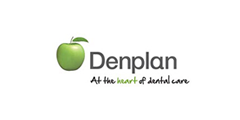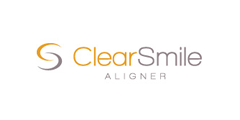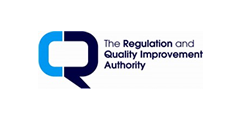
Menu
Sweets, fizzy drinks and bottles
10 Aug 2017

Tips for parents on the top causes of tooth decay in children – and how to avoid them.
Establishing good habits can help your child avoid oral health problems, such as tooth decay and gum disease.
Can I let my child have sweets?
Most children want sweets, but you can help to prevent problems by making sure they don't have a large amount or very often, and particularly not before bed, when saliva flow lessens.
Try not to give sweets or sweet drinks as rewards.
What are the best snacks to give my child?
The best snacks are fruit and raw vegetables. Try tangerines, bananas, pieces of cucumber or carrot sticks. Other good snacks include toast, rice cakes and plain popcorn.
Dried fruit is high in sugar and can be bad for teeth, so only ever give it to children with meals – for instance, as a dessert – and never as a snack between meals.
Should I let my child have fizzy drinks?
No. Fizzy drinks can contain large amounts of sugar, which will increase the risk of tooth decay. Fizzy drinks (both those containing sugar and sugar-free or "diet" versions) also contain acids that can erode the outer surface of the tooth.
What are the best drinks for my child's teeth?
The best drinks for children over one year old are plain still water or plain milk.
Your child should have full-fat milk (whole milk) from the age of 12 months to two years.
Semi-skimmed milk can be introduced from the age of two, as long as your child is a good eater and growing well for their age.
Skimmed milk can be given to children aged five and over.
Cow's milk is not suitable as a drink for babies under 12 months of age.
Is it OK to drink fruit juice or smoothies?
Even unsweetened juices and smoothies contain sugars and acids, so although they can contribute towards their 5 A DAY, restrict your child to no more than one small glass (about 150ml) of fruit juice or smoothie each day and only at mealtimes.
Also, be aware that unsweetened 100% fruit juice, vegetable juice and smoothies can only ever count as a maximum of one portion of their 5 A DAY.
For example, if they have two glasses of fruit juice and a smoothie in one day, that still only counts as one portion.
If your child is thirsty, it's better to give them water than to encourage a taste for sweet drinks.
Try to avoid giving babies fruit-flavoured "baby juices", and never give them in feeding bottles. Fruit juice should not be given to babies under six months.
Will milk at bedtime damage my child's teeth?
Teeth are at most risk at night because there is less saliva in the mouth to protect them.
Water is the best drink to give at bedtime, but if you do give milk, don't add anything to it. Chocolate-flavoured drinks and milkshake powder usually contain sugars, which will increase the risk of decay.
Are sugar-free medicines better for my child's teeth?
Yes. Always ask if a sugar-free medicine is available and remind your doctor about this if you're being given a prescription for your child. This is especially important if your child is taking long-term medication.
When should my child give up bottles?
Your child should begin moving off the bottle and on to a free-flow feeder cup at six months. Try to get them off bottles completely by the age of one, because the teats and spouts encourage children to suck for long periods of time, meaning the drinks that cause tooth decay stay in contact with your child's teeth for a long time.
Are sippy cups good for teeth?
There's no need for a child to use a sippy cup. They're similar to a bottle in that they require the child to suck to make them work. A free-flow feeder cup is better, as it doesn't have valves and the flow of liquid is unrestricted. This means that children learn to drink normally rather than by sucking.
Will a dummy or thumb sucking harm my child's teeth?
No, but they will encourage an open bite, which is when teeth move to make space for the dummy or thumb. They may also affect speech development. That's why you should avoid using dummies after 12 months of age.
Thumb sucking won't cause permanent problems, as long as the habit stops by the time your child gets their second teeth, but it can be a hard habit to break.
Discourage your children from talking or making sounds with their thumb or a dummy in their mouth, and don't dip dummies in anything sweet, such as sugar or jam.
http://www.nhs.uk/Livewell/dentalhealth/Pages/Goodhabitskids.aspx

TestimonialsMore Info

Dear Nicky, I would like to express my sincere gratitude to you and all the staff on reception for your kindness and courtesy to me at all...

For a number of years I had a temporary dental bridge, as I had two front teeth knocked out while playing sport when I was teenager. The...

I have been a patient with Billy Campbell for 14 years now and have always been happy with the treatment I received and the service provided by...







